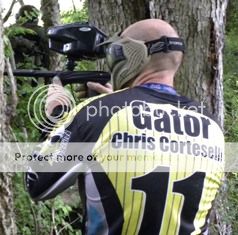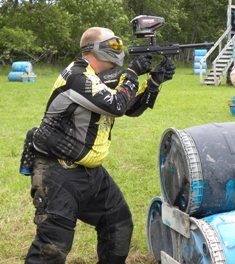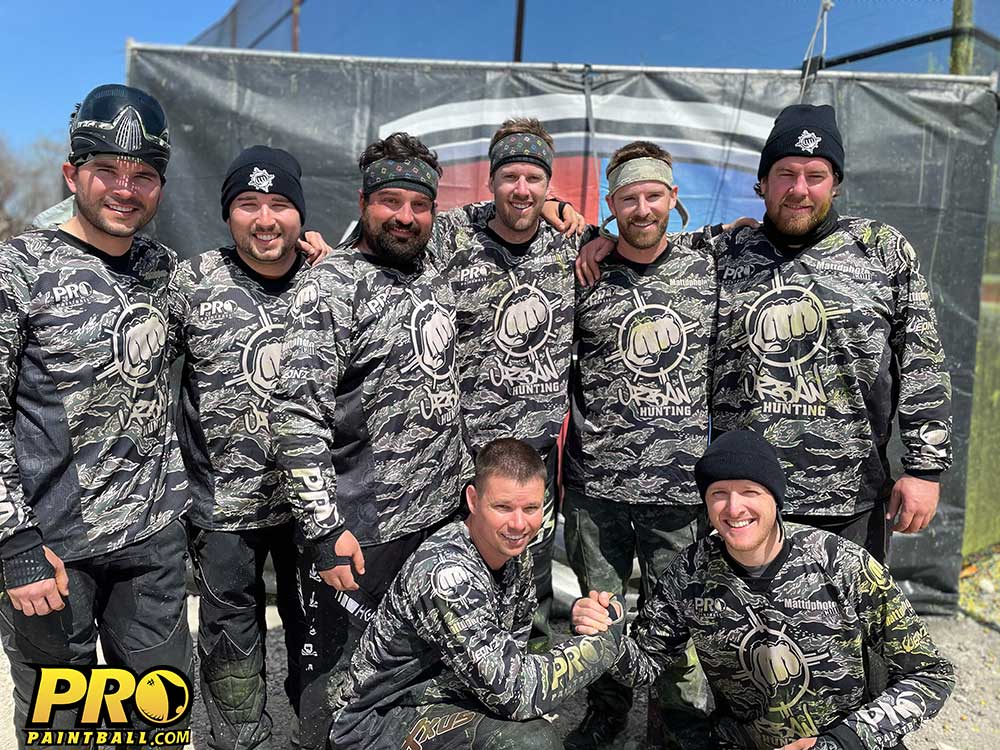Welcome to another edition of The Friday Frag. As you recall, I left last week with the question of which of the 5 W’s of Recruiting is most important. The answer to this is most importantly the Who. Out of all the 5 W’s, who you recruit will dictate if your team makes it past the 2-3 year mark or not. All successful teams recruit the like-minded individuals who share the same goals and beliefs that they do. However, do not get me wrong, the What/Where/When and Why are also important, but will always take a back seat to Who you are recruiting.
 Before attending any event, a team should practice at the very least a few times playing rec paintball. This is very important, as you do not want to show up to an event with no playing experience as a team. Most fields run mini scenario missions during the course of walk on play, and if they don’t, you can always ask the field manager/owner to run a few capture and retrieve or attack and defend style games to get some general practice in. Using these practices, you can work on your shooting skills, team communication and other similar things you may want to work on depending on your style of play and the type of event you are planning to attend.
Before attending any event, a team should practice at the very least a few times playing rec paintball. This is very important, as you do not want to show up to an event with no playing experience as a team. Most fields run mini scenario missions during the course of walk on play, and if they don’t, you can always ask the field manager/owner to run a few capture and retrieve or attack and defend style games to get some general practice in. Using these practices, you can work on your shooting skills, team communication and other similar things you may want to work on depending on your style of play and the type of event you are planning to attend.
Now the topic of attending your first event can be just as stressful as it is exciting for new team captains. You are running through your head all the what-ifs and what you still need to do prior to leaving for the field. We have all been there, but now these worries are on a wider scale, as the Team Captain is responsible for making sure everyone is taken care of from start to finish. This may consist of setting up car pools to making sure people do not forget batteries for their gear. (You name it; I can tell you a time when someone forgot it.)
But before we get ahead of ourselves, deciding what the first game to attend can be just as important as attending the event. A good rule of thumb for new teams is there should be no travel outside of 2 hours for the first year or so. We all want to attend the big games like D-Day, IoN and Living Legends, but there is a time and place for these events. You should check your local field’s schedule and see if there are any upcoming events. With Scenario paintball becoming popular again, most fields are hosting events every couple of months.
 Now that you have decided on which game to attend, it’s time to register for the event. Some fields and producers offer incentives for teams to register all at once. These incentives can be anything from the captain/player playing for free, to a case of paint to even a free marker from a sponsor of the field. As a Team Captain, you should contact the field or producer to see if they are offering any incentives. It never hurts to ask remember, and you may be surprised what types of offers are out there for teams. Either way, it is much easier in the long run if you collect everyone’s money in advance.
Now that you have decided on which game to attend, it’s time to register for the event. Some fields and producers offer incentives for teams to register all at once. These incentives can be anything from the captain/player playing for free, to a case of paint to even a free marker from a sponsor of the field. As a Team Captain, you should contact the field or producer to see if they are offering any incentives. It never hurts to ask remember, and you may be surprised what types of offers are out there for teams. Either way, it is much easier in the long run if you collect everyone’s money in advance.
When a team is getting ready to attend an event, it is the job of the Team Captain to make sure that all the loose ends are taken care. As we touched on earlier, this may be from setting up carpools, to printing out travel maps for everyone to collecting paint money prior to leaving. You should try to divvy out different tasks to your players, this helps insure that as Team Captain, you are not stretched to thin. But remember, it is up to you to make sure that any task that is given out is completed.
Upon arriving at the field, the first thing you should do is set up your staging area. If you’re staying overnight, set up your tents and campfire, collect firewood and everything else that may be needed for camping. If it is a one day event, all you need is to set up your easy up awning or whatever you are using to stage from. Once your staging area is ready to go, you should register and pick up your paint as early as possible. This will allow you more time to set up your marker, pod up and get a game plan established.
One of the most important things a Team Captain should have their players do is walk the field prior to the game. This is important, as you can get a better perspective of the playing field, and work out different angles that will work when fighting the opposing side during the game. By walking the field, you will also see what routes work and what ones will lead you into an costly ambush that could mean dropping a mission.
This weeks question is: What do you think the most important task is prior to game on?
Next week we will be discussing the issue of playing the team’s first event.
Until next time,
Josh Foote

